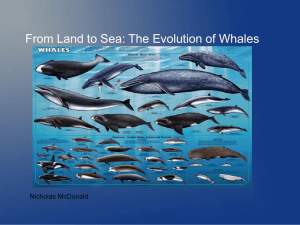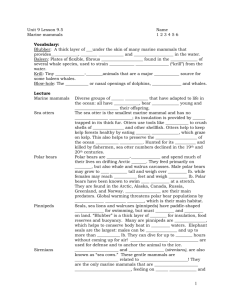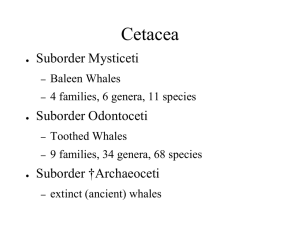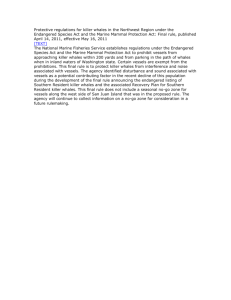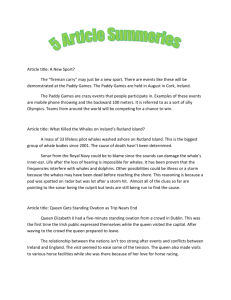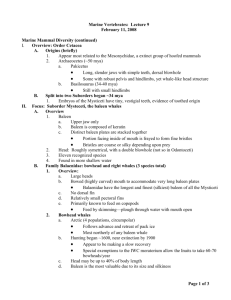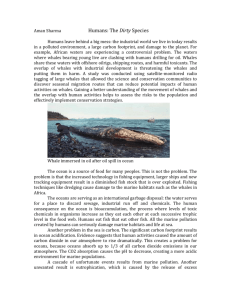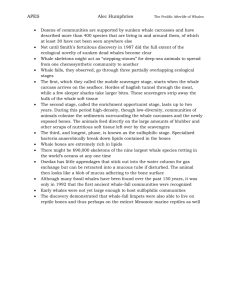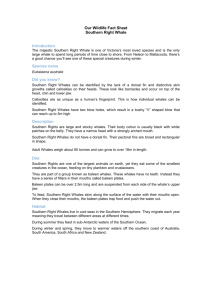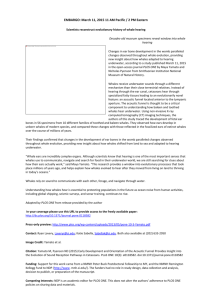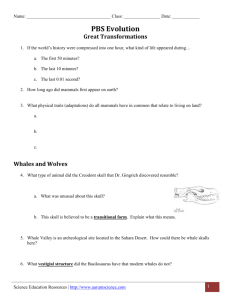Blue whales - World is your oyster
advertisement
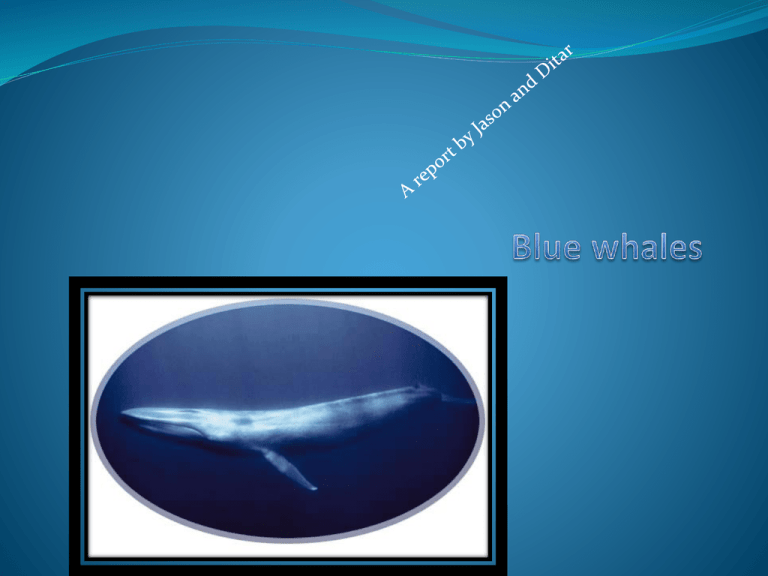
FAMILY LIFE A female blue whale gives birth to one calf every 2-3 years. Whales start calving between age 6 and 10,baby’s are 8 meters long when born and weigh about four tons. Whales live together in groups called pods, there are usually 10-20 whales in a pod. What are blue whales??? They are the largest type of animal ever to live on Earth . They rule the ocean at a length of 300meters. It weighs about 200tons. The heart alone can weigh as much as an elephant. Special features Blue whales look true blue underwater, but their real colour is a molted blue gray their bellies take on a yellowish hue. They have a flat head and a long tapered body that ends in wide, triangular flukes. Food and predators Blue whales are baleen whales, which means they have fringed plates of fingernail like material, called baleen, attached to their upper jaws. The giant animals feed by first gulping an enormous mouthful of water, expanding the pleated skin on their throat and belly to take it in. Then the whale's massive tongue forces the water out through the thin, overlapping baleen plates. Thousands of krill are left behind—and then swallowed. Where do they live?? The Atlantic Ocean is where these majestic mammals of the deep love to live, feed and breed because the water temperature there is perfect for a mammal that has dozens if not hundreds of tones of blubber around its body. The blue whales are capable of traveling thousands of kilometers so you can also find them in the warmer Pacific Ocean. The blue whale just like many other whale species are mainly comprised of blubber and it is not unusual to see them alongside an iceberg Why are they endangered??? Between 10,000 and 25,000 blue whales are believed to still swim the world's oceans. Aggressive hunting in the 1900s by whalers seeking whale oil drove them to the brink of extinction. Between 1900 and the mid1960s, some 360,000 blue whales were slaughtered. They finally came under protection with the 1966 International Whaling Commission, but they've managed only a minor recovery since then. Blue whales have few predators but are known to fall victim to attacks by sharks and killer whales, and many are injured or die each year from impacts with large ships. Blue whales are currently classified as endangered on the World Conservation Union Red List. How can we help??? We can help these majestic creatures by recycling , picking up garbage from streams, stop other people from polluting the streams . Because they lead to the oceans and if everyone pick up one piece of garbage, then it would make a big different. bibliography: http://animals.nationalgeographic.com Google images Blue whales by: Rod Theodorou THANKS FOR WATCHING!!
